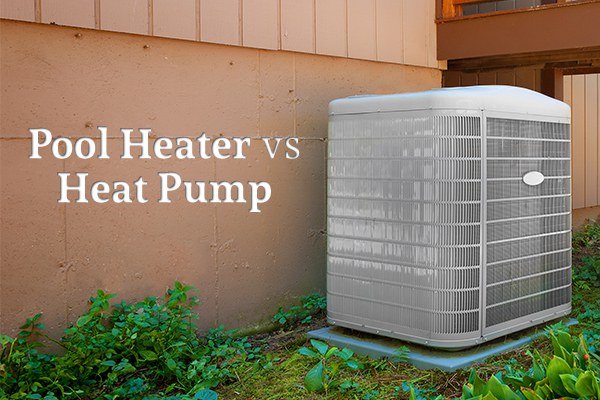
Having a heating system for your pool helps extend the pool season into the colder months of the year so that you can make the most out of your pool and backyard space. It is important to understand the difference between a pool heater and a heat pump to ensure that you are choosing the best option for your pool.
What Is a Pool Heater?
Pool heaters use either natural gas, propane, or electricity to heat the water as it runs through the heat tank and back out into your pool. Knowing the differences between these types can help you decide which option will best suit your needs and lifestyle.
Electric pool heaters are not as efficient as gas or propane pool heaters when used on a larger pool, but they are perfect for small pools, spas, or hot tubs. While they are more eco-friendly and better for the environment, electric heaters do require more draw on your home’s energy, increasing your energy bill.
In contrast, gas and propane pool heaters work rapidly to heat the pool’s water. Because of their quick heating ability, they have a lower operating cost than an electric pool heater, as well as high performance for energy-efficiency.
Pros and Cons of a Pool Heater
PROS:
- Low Upfront Cost (Installing a gas pool heater can cost as little as $2,500 or so, depending on the type you get)
- Heats Water Quickly (A gas heater is even faster than an electric heater)
- Works in Any Temperature
- Easily Installed into the Gas Line of Your Home
CONS:
- Electric Pool Heaters Have a High Utility Cost
- Gas Heaters can be Expensive Fluctuating Gas Prices.
- More Moving Parts That Need Regular Maintenance
What is a Heat Pump?
Heat pumps use the air surrounding your pool to heat the water in your pool. Warm, ambient air passes over an evaporator coil and the heat is transferred to the refrigerant inside the heat pump. As the refrigerant is compressed, heat is then transferred to the water.
Because of this design, heat pumps are best used in very warm climates where the outside temperature never, or rarely dips below 50 degrees. Heat pumps run off of electricity and also require your pool’s filtration system to be running. On average, the total cost to run a heat pump is about $0.63 per hour.
Pros and Cons of a Heat Pump
PROS:
- Lower Operating Costs
- High Energy Efficiency
- Easier to Install Than a Pool Heater
- Great for Mild Climates
CONS:
- Higher Upfront Cost
- Not Effective If Temperatures Drop Below 50 Degrees
Want to Install a Heat Pump or a Pool Heater?
Whether you choose a heat pump or a heater for your pool, our experienced team at Liquidus Pool Services will ensure your choice is installed quickly and safely. If you need help figuring out which option best suits your needs, please call us at (214) 903-3732 or fill out the short contact form below.
